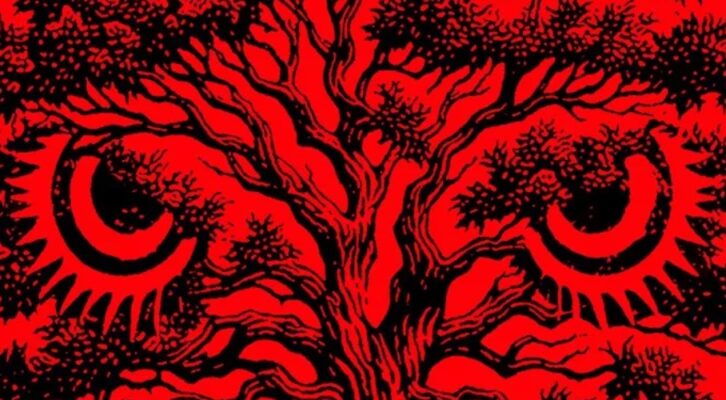Lit Hub Weekly: October 9-13, 2023
THE BEST OF THE LITERARY INTERNET

- “What these readers are expressing is not so uncommon: the fear of indirect contact. They can’t bear to think that their beloved author has passed through the filter of some other being.” Todd Portnowitz on the translating the stories in Jhumpa Lahiri’s new collection. | Lit Hub On Translation
- “‘Ye olde’ is in fact a pseudo-archaic term; no one ever said ‘ye olde’ except in imitation of an imagined speech of the distant past.” Hana Videen on Chaucer, Hamlet, and the evolution of Middle and Old English. | Lit Hub History
- “Even when writing an escapist romance, Wharton is inescapably herself: A brilliantly funny cynic; a razor sharp observer of the mores of the very rich; a chronicler of bad behavior.” Jessie Gaynor on Edith Wharton’s pessimistic literary escape The Glimpses of the Moon. | Lit Hub Literary Criticism
- “I don’t know if my writing improved, but I did write differently after I was diagnosed with stage 4 colon cancer in early 2016.” Dan O’Brien on how to write a memoir while dying. | Lit Hub Memoir
- “What I think the Academy meant is that, across his forty-odd plays, his novels, his essays, and his children’s books, what is unsayable—the absolute depths of abandonment, shame, love, and grace—is felt without needing to be named, surpassing the mere arrangement of words on a page.” Merve Emre on newly crowned Nobel Prize laureate Jon Fosse and the art of what can’t be named. | The New Yorker
- “Last month the biggest drug raid in Irish history had been carried out by… William Butler Yeats.” Did you know the Irish navy has named its warships after Irish writers for the past decade? | The Irish Times, New York Times
- “I was once the sort of person who thought they knew Dracula, and might have spent my adult life without reading the novel until a close friend dropped some very suspect-sounding and yet enthralling literary gossip…” Alex Chee on Bram Stoker, Walt Whitman, Oscar Wilde, and finally reading a classic. | Guernica
- Esquire has dubbed Chain Gang All Stars author Nana Kwame Adjei-Brenyah “one of the most exciting literary talents of this generation” in a profile of the National Book Award finalist. | Esquire
- “Your Uncle Roger writes doggerel verse like this by the yard and sends it out to you every Christmas. I point out that a chatbot replacing Uncle Roger might very well happen, but, dear published author, it is not yet very likely to replace you.” Margaret Atwood reviews a “Margaret Atwood” story by AI. | The Walrus
- Dan Sinykin traces the surprisingly short history of “literary fiction.” | The Nation
- Book banning is getting even stupider: “A public library system in Alabama flagged a children’s book as potentially ‘sexually explicit; because the author’s last name is ‘Gay.’” | NBC News
- Melvin L. Rogers revisits W.E.B. Du Bois’ 1926 symposium, “The Negro in Art: How Shall He Be Portrayed?” | Lapham’s Quarterly
- The editor of Bad Form on the necessity of literary magazines in the face of financial struggles | The Guardian
- “She dared to speak out loud what others had experienced but were not yet ready to talk about.” Laima Vince recounts the experience of teaching writing to Ukrainian refugee women. | Arrowsmith Press
- “The only route to Utopia is illuminated by disobedience.” Rachel Vorona Cote on Oscar Wilde’s critical writing. | The Nation
- What are the best descriptions of loneliness in literature? Sophie Ratcliffe makes some suggestions that describe “a painful absence all the time.” | The Guardian
- The Indian government has charged Arundhati Roy with “offenses related to provocative speech and the promotion of enmity between different groups” over public comments she made 13 years ago about Kashmir. | The New York Times
- Steven Spielberg, David Zaslav, Liza Minnelli, Ava DuVernay and others pick the 100 best film books of all time. | Hollywood Reporter
- Read Myroslav Laiuk’s wartime poems, translated from Ukrainian by Ostap Kin and Kate Tsurkan. | The Dial
Also on Lit Hub:
Adam Dalva tries to profile Benjamín Labatut • Ann Patchett rereads Oscar Hijuelos • Paul Yoon in conversation with his wife, Laura van den Berg • Rumaan Alam wants you to read Helen Garner’s The Children’s Back, “a story about how life happens to all of us” • Aleksandar Hemon on endings • The Marvelettes on how they became Motown music legends • Why Sergey Gandlevsky’s Russian protest poems still matter now •Adam Thirlwell on Witold Gombrowicz’s The Possessed • David Mitchell on life in early-Medieval England the less-than-illustrious origins of the English crown • Alex Dos Santos on how horror helps us confront and understand our grief • All the ways Rebecca Clarren learned to write her book • Sigmund Freud, Ambassador Bullitt, and the lost psychobiography of President Woodrow Wilson • Amanda Montei’s reading list of seven novels that explore consent and coercion • On the world’s most beautiful bird • Isa Arsén in praise of pulp fiction • Martin Goodman considers what it means to write about the Holocaust • Nobel Prize Laureate Katalin Karikó on her Hungarian childhood • Thrity Umrigar on fitting in in Americal • Dorothy Lasky on the power of horror •Marlena Williams looks at Linda Blair’s infamous role The Exorcist



















